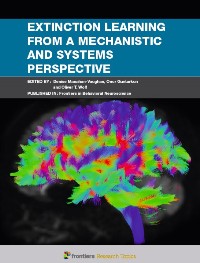DFG Research Unit 1581
Project Profile P8
Contribution of the Human Cerebellum to Extinction Learning and Renewal
There is evidence that the cerebellum contributes to the acquisition of new associations. Comparatively little is known about the role of the cerebellum in extinction learning and related processes, particularly in humans.
The aims of the project are:
- Provide convincing evidence that the human cerebellum is involved in extinction of conditioned eyeblink responses. Acquisition is known to be impaired in cerebellar patients. Therefore, extinction of the visual threat response, a naturally acquired conditioned eyeblink response, will be studied in cerebellar patients. The visual threat response has been acquired in early childhood and therefore before the onset of the disease.
- Investigate whether the cerebellar cortical areas and cerebellar nuclei involved in the acquisition and extinction of conditioned eyeblinks overlap. In analogy to the function of the amygdala in fear conditioning, we expect that cerebellar areas overlap at least in part.
- Because of the cerebellum's known anatomical connections to the prefrontal cortex and functional interactions with the hippocampus, context-related information in extinction of conditioned eyeblinks may be relayed to the cerebellum. Therefore we will investigate whether the cerebellum contributes to the context-related renewal effect both in eyeblink conditioning and cognitive associative learning.
Method
Experiments are designed which make use of recent methodological advances in lesion-symptom mapping in cerebellar patients and of ultra-highfield (7 Tesla) magnetic resonance imaging (MRI) for performing functional MRI of both the cerebellar cortex and nuclei.
Subjects: Cerebellar patients with focal and degenerative disease and healthy subjects.
Cooperation within the Research Unit
- Project P4: close collaborations regarding the investigation of renewal of cognitive associations
- Project P6 and P7: Employs similar experimental paradigms with human subjects using fMRI.
Cooperation outside the Research
- Unit Behavioural experiments are performed in close cooperation with Prof. Dr. Vlastik Bracha, Iowa State University, Ames, USA.
Contact: In case of any questions regarding P8 please contact
Prof. Dr. Dagmar Timmann-Braun
dagmar.timmann-braun@uni-due or
Prof. Dr. M.E. Ladd






 Don't forget...
Don't forget...
